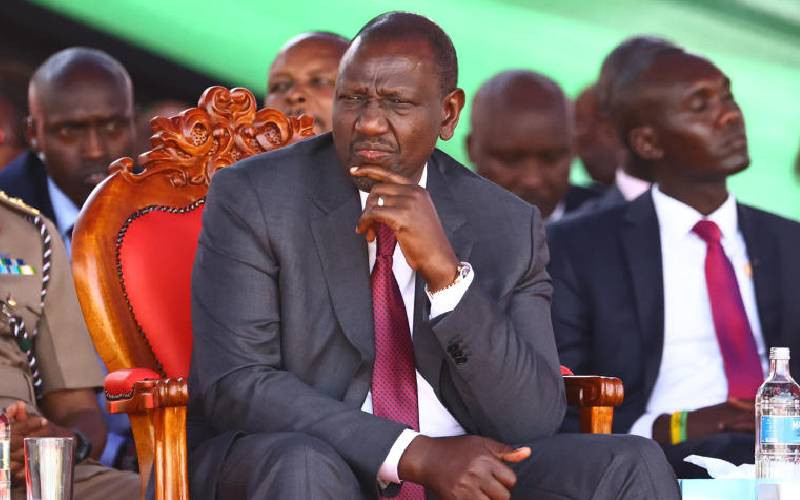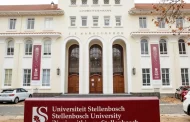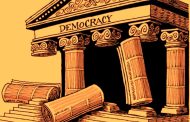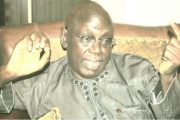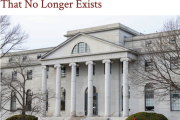President William Ruto of Kenya must still be trying to make sense of the anger of his population against wild taxes (started since 2023). Imposed as part of the usual IMF reform package and ruthlessly anti- people, these sets of taxes trigger resistance at a point. The past one week has been that point in Kenya, unfortunately. What it means is that if Kenya’s economy were not to be operated in such a manner as to enable it prioritise debt repayment, it might not have been imposing taxes which people are too poor to pay.
There is a similarity there with Nigeria. Nigeria is ruthlessly taxing too although it is open to question whether it is the IMF sponsored reform package or the ‘Lagos model’ ideology that is propelling the taxes. Whichever one is, taxation is the new normal in Nigeria. In Abuja, the capital city, federal establishments such as the Vehicle Inspection Officers (VIOs), the Federal Road Safety Corps (FRSC), the Municipal revenue generation police and sundry other entities are put on revenue generation targets. So, there are tax collectors everywhere,
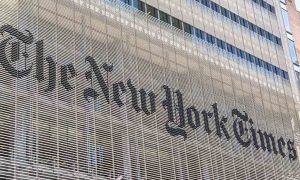
A very compelling newspaper but a newspaper with an interested gaze on the world!
At the state level, governors score appointed local government council chairmen who have increased ‘internally generated revenue’. That is the name they call it, instead of taxes, clever guys!. And it stretches to taxing rural women on every stuff they ever took to the local markets even as no one ever sees any developmental footprints of any of these basically dead local governments in majority of the states in Nigeria.
As things are now, both the very good as well as the very terrible African leaders must operate under a reform umbrella held by the IMF over his or her head, alienating him or her from the people daily. And, in a few cases, taking the beating when the people manage to get angry enough and unite for a test of strength. In each case, there is a puzzle.
Empirically, there is almost nothing to quarrel about with the recent representation of the administration in Nigeria by the New York Times. The report said, in sum, that the policies of the government headed by President Bola Tinubu have led to an aggravated dislocation. That is basically unchallengeable. The policies have actually amounted to sacrificing human beings to some economic logic barely elaborated upon and hardly comprehensible beyond its intellectuals and practitioners.
The puzzle, however, is whether Patrice Lumumba or Muammar Gaddafi were enacting hell on earth for their own people when they were eliminated. So, when is an African leader at peace from the disciplinary scrutiny of the metropolitan panoptic complex in general and the media component in particular? The administrators of disciplinary neoliberalism impose the conditionalities. The frame game machine, led by the New York Times of this world, deploy meaning to label the regimes implementing the conditionalities. The domestic audience hail the reporting because, on the decontextualised face of it, the reporting makes eminent sense. What if the regime were a radical organiser of counter hegemonic practices of power? Would it get an approving label from the New York Times of this world? The same New York Times that had to apologise over its coverage of the bombing of Iraq, for example. This puzzle should be food for thought!
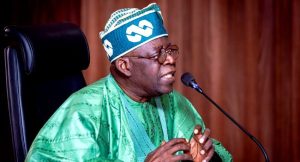
President Tinubu of Nigeria, the godfather of what Prof Howard French calls the ‘Lagos model’ and its ruthless tax ontology
But there is the even more puzzling domestic dimension of the puzzle from the way the Nigerian government responded to the New York Times‘s piece, for instance. What did it say? One line of argument there is that the report is racist and hysterical. How is it possible for a regime implementing a set of policies prescribed for it by its foreign masters to now see RACISM in the actorness of one of the players in the same family of the foreign masters just because that lone player disapproves of the excesses of these same policies? What could be the problem with the African intellectual of power?
It is important to draw attention to this puzzle- the puzzle of when the African government could possibly be the winner in this game of writing the world. And to point out that winning is not in writing a rejoinder that fails even the test of conventional logic but in the politics of meaning. Unfortunately, that is what much of Africa is not interested in. In Nigeria, for instance, there isn’t good mastery of the politics of meaning in global politics, whether in the foreign policy establishment, the civil society or even in the academia. It is neither part of the curriculum in the universities nor domesticated enough by what exists as political parties, much less the civil society peopled by largely incoherent products of a university system that is all but dead, deliberately strangulated by the state.
Metropolitan media follow their national flag. There may be no unanimity within them about candidates in any presidential contest in an African country but opposition to the preferred candidate of the United States in any such election will be muted, notwithstanding the ideological diversity. This complicates the puzzle in question.
There is something to worry about in this: supposing a determined African leader – patriotic, informed and programmatically full – emerges. How can s/he be secured from disciplinary neoliberalism’s language game? This should be an important poser in the light of the fate that befell the earlier generation – Lumumba, Nkrumah, Mugabe, Gaddafi and even Mandela even as scarce as their types are nowadays around Africa.
Nothing is said here to suggest that the New York Times hated these gentlemen but that no newspaper looks at the world with an innocent gaze. In that case, both the good and the bad African leader are just vulnerable. Within the West itself, so much is being done to knock off this metropolitan geopolitical disciplinary machine, especially in academia, in the politics of voice and resistance in popular culture but when will the Africans also extend the resistance gaze unmistakably?

